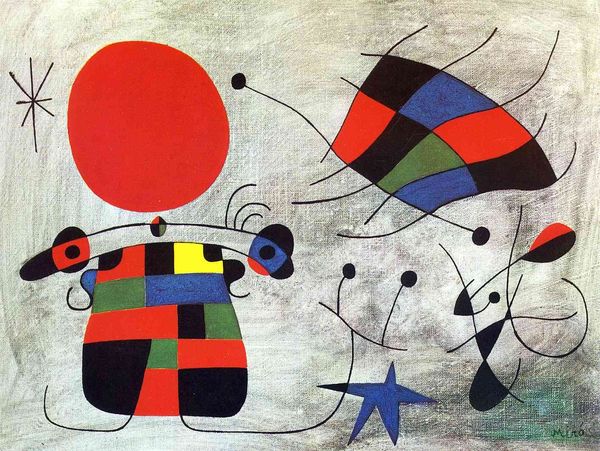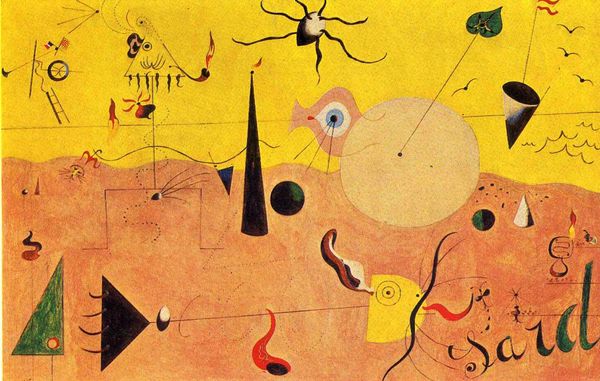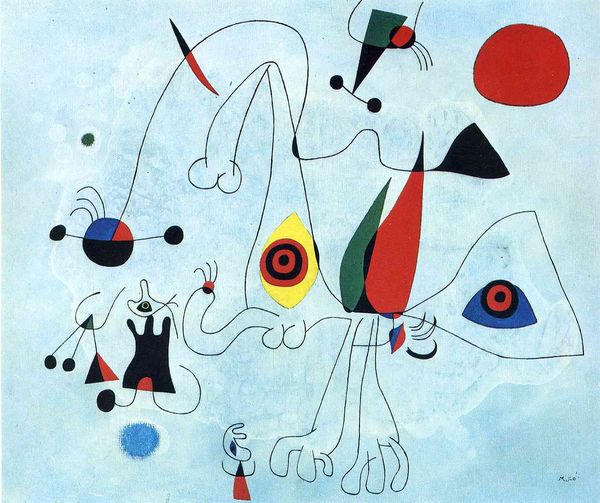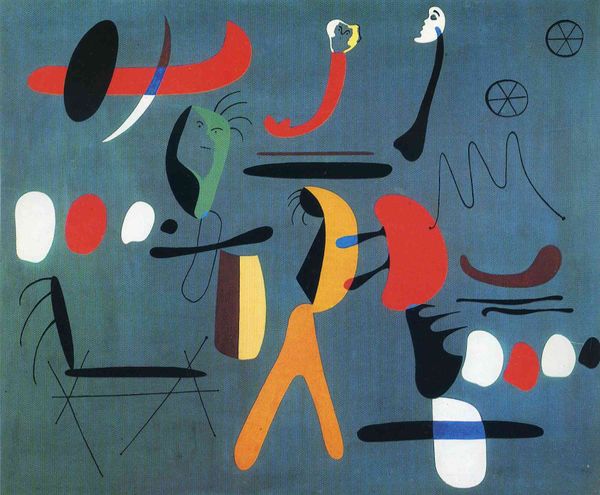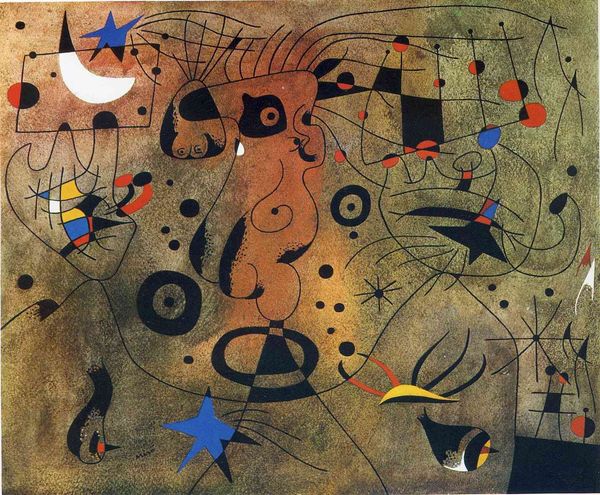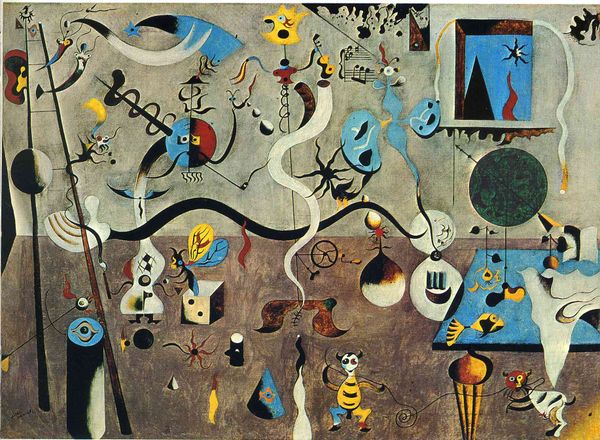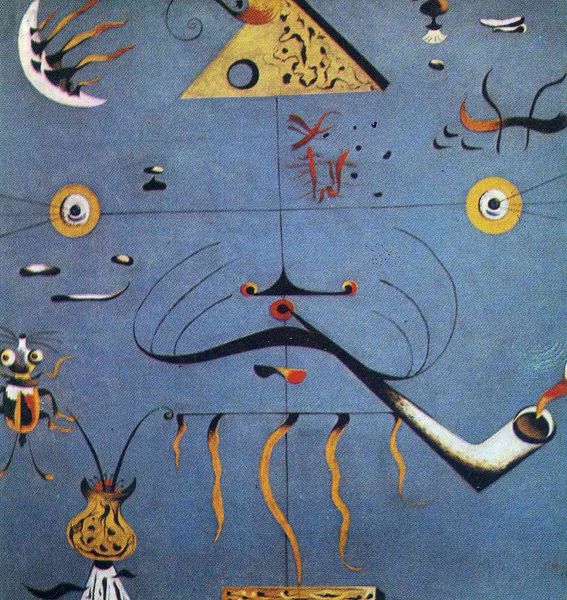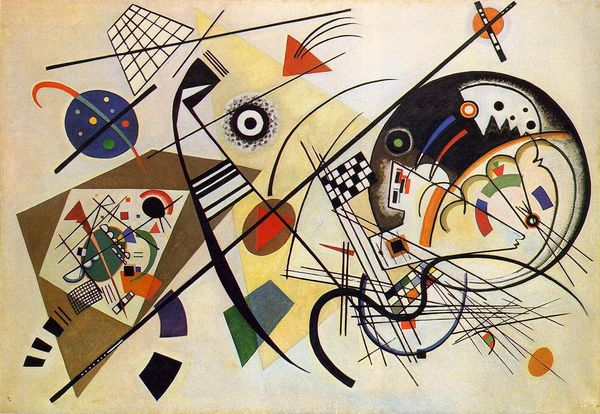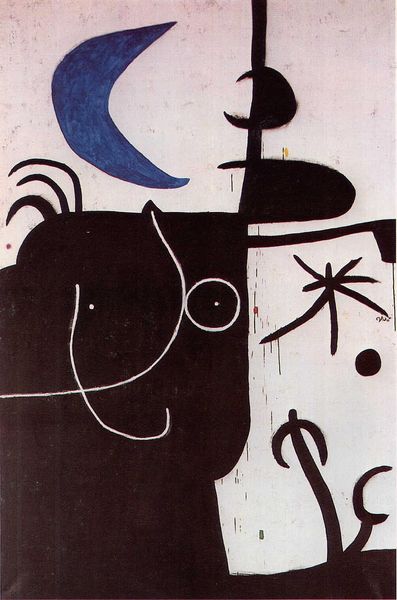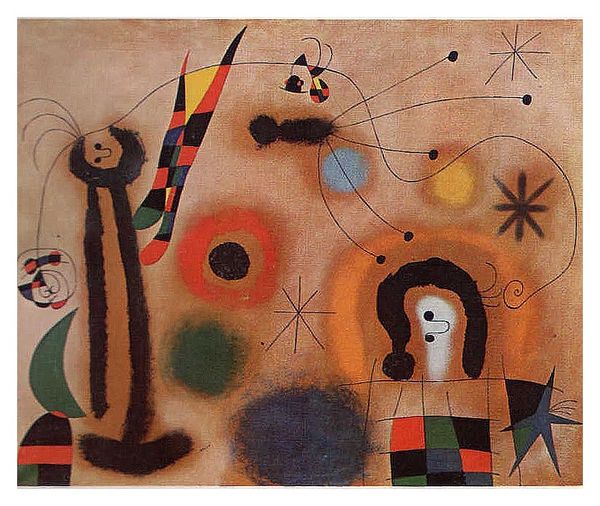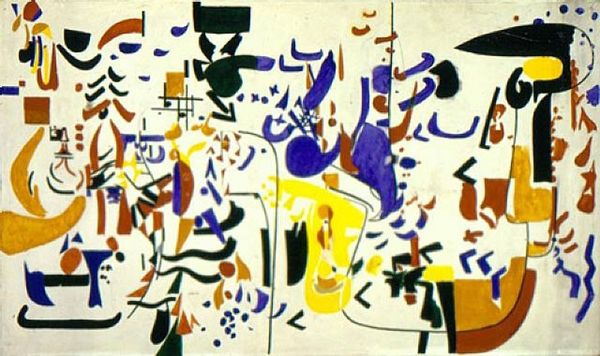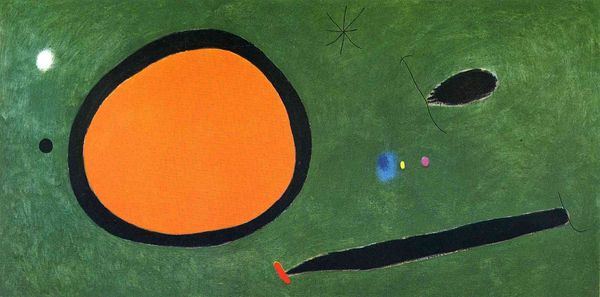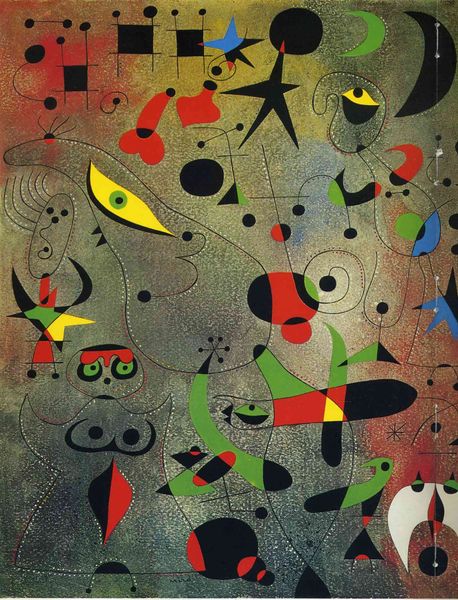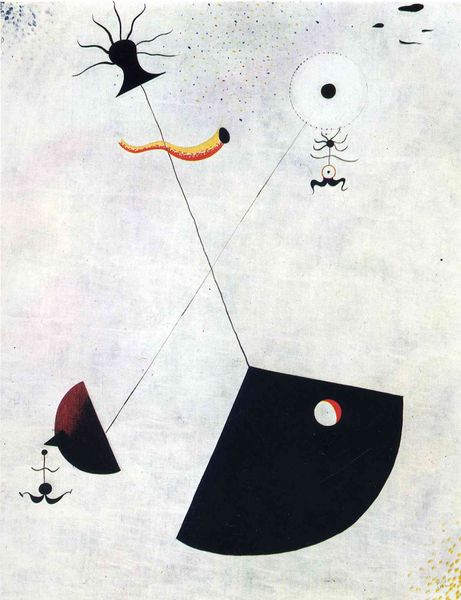
painting, acrylic-paint
#
abstract painting
#
painting
#
pastel colours
#
acrylic-paint
#
form
#
geometric-abstraction
#
abstraction
#
line
#
decorative-art
#
surrealism
#
decorative art
Copyright: Joan Miro,Fair Use
Curator: Well, isn’t this something? The air is alive here at the Joan Miró Foundation as we turn our attention to “Woman and Bird in the Night,” rendered in 1975. It's quintessential Miró, really. Editor: My initial impression is… playful. A very curious interplay between biomorphic forms and rather strict geometric shapes. It feels lighthearted, almost like a children's book illustration but tinged with something darker. Curator: Darker how? I see a definite sense of levity with all the soft pastel shades. I’d wager that the lines evoke a feeling of boundless, nocturnal space where imagination takes flight—pun intended. Editor: But there's also this dominating black triangle. Isn't that a little looming, almost sinister? In terms of symbolism, I'd suggest the 'Woman' element is very subdued; a few disembodied eyes, and what looks like the ghost of a profile, so perhaps representing the fracturing of identity? Curator: That might be looking into things too deeply... though I admire your interpretation. However, I think that the “Woman” element is meant as an icon. Like his stars, his birds, Miró has developed a vocabulary for these familiar concepts. To me, it is rather a personal landscape with private and significant symbols that reflect his unique approach to decoding reality. Editor: Ah, so these recurrent motifs of his were keys to something… some personal philosophy rendered on the canvas! Curator: Precisely. He had no intention to illustrate tangible subjects. In other words, you will not see any real woman or any real bird… However, you certainly see elements of it that float through a dreamy, contemplative arena of imagination. Editor: It feels remarkably like the language of dreams where disparate elements coalesce to create something entirely new, yet rooted in something we innately recognize. A bird. A woman. Night. But… altered. Distorted. It's lovely how he blends them. Curator: The decorative element is undeniable, the use of acrylic and his linework makes everything flow. And although it seems naive it certainly invites us into his world and makes us reflect on our inner symbols, wouldn't you say? Editor: Yes! Precisely. It is like having a peep into a highly complex and poetic imagination which remains, at its heart, undeniably human. Thanks, Miró.
Comments
No comments
Be the first to comment and join the conversation on the ultimate creative platform.
